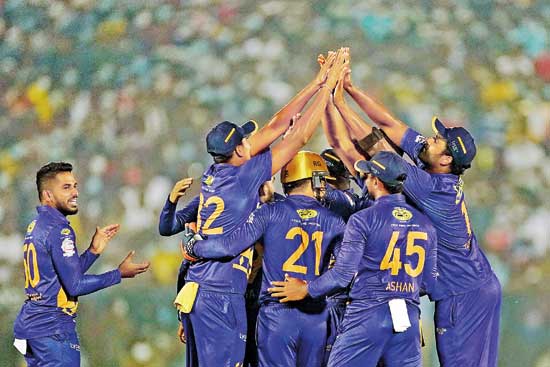Is LPL running in the right direction?
The LPL has seen a staggering 16 different team owners across its five franchises since inception in 2020.

Jaffna -- Stallions, then Kings and now what?
The Jaffna franchise, despite being the league’s most successful team with three championships, will now be under its third different ownership group. After changing hands of its ownership from Jaffna Stallions, the Kings continued to own the team during the last four seasons but not any longer as financial woes have forced their exit. On the other hand, the Colombo franchise is set to welcome its fourth owner, having previously operated as Colombo Kings, Colombo Stars and Colombo Strikers.
This level of ownership turnover is almost unheard of in established sports leagues as most successful leagues build stability through consistent ownership–be it football, basketball or cricket. The LPL seems to be doing the opposite.
The remaining three franchises—Galle Marvels, Dambulla Sixers, and B-Love Kandy—are all relative newcomers, having entered the fold just last year. The Galle franchise has already seen three different owners, transitioning from Galle Gladiators to Galle Titans and now Galle Marvels. The Dambulla franchise has undergone several rebrandings as well, shifting from Dambulla Vikings to Dambulla Giants, then Dambulla Aura, and currently, Dambulla Sixers. The Kandy franchise is on its fourth ownership, evolving from Kandy Tuskers to Kandy Warriors, then Kandy Falcons, and now B-Love Kandy.
This means the LPL now lacks any franchise owner with experience predating 2024, raising serious questions about the league’s long-term viability.
While Sri Lanka Cricket (SLC) cited “failure to fulfill contractual obligations” as the reason for terminating the two franchises, sources close to the situation reveal more specific concerns. According to these sources, the franchises failed to pay the third and final installment of player payments—representing 40 percent of agreed compensation—within two weeks of tournament completion.
This pattern of payment delays has become distressingly familiar in the LPL, with several former owners also facing similar issues. Insiders suggest that the financial model of the league may be fundamentally flawed.
Sri Lanka Cricket’s primary focus appears to be revenue generation from this tournament, as evidenced by their substantial franchise fee. This year, following a 10 percent annual increase, the fee has reached approximately USD 2.5 million—an exorbitant amount for a tournament of this scale. When the governing body demands such high fees, rights holders inevitably transfer these costs to team owners, creating an unsustainable economic model. This financial imbalance is precisely what has led to the current predicament.
“The investment required to run an LPL franchise is substantial, but the returns haven’t materialised as expected,” explains an official familiar with the tournament’s governance structure.
“Between player salaries, operational costs, and franchise fees, owners are finding that the revenue streams from ticket sales, sponsorships, and broadcasting rights aren’t sufficient to create a sustainable business.”
The global T20 league calendar has become increasingly crowded, with competitions like the Indian Premier League, Big Bash League, ILT20, and Caribbean Premier League commanding greater financial resources and attracting top international talent. This leaves smaller leagues like the LPL fighting for relevance in a saturated market.
The constant turnover in ownership raises questions about SLC’s vetting process for potential franchise owners. Critics suggest that more rigorous financial checks and balances might prevent the selection of owners who ultimately prove unable to meet their financial obligations.
The partnership between SLC and IPG Group, the league’s organising partners, has also come under scrutiny. While both entities stated they “remain committed to upholding the integrity, standards, and success of the Lanka Premier League’, their player payment structures and franchise selection criteria clearly require reevaluation.
As the LPL prepares for its sixth season, finding stable ownership for the Jaffna and Colombo franchises will be crucial. The league’s organisers must address the underlying financial and structural issues that have led to this unprecedented ownership turnover.
Without addressing its fundamental business model, the cycle of ownership turnover seems likely to continue, regardless of which new investors step forward to take control of the Jaffna and Colombo franchises.


